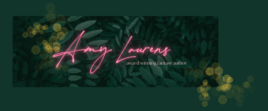I’m sitting upstairs in my new ‘office’ space, quiet piano music and rain sounds playing to block out the TV below and to help my son block out the sounds of his mind, because he’s having trouble getting to sleep lately (aren’t we all? I slept through the night last night and it felt like a miracle).
It’s a strange, liminal kind of space. I’m not in a room, but I’m in the house. (My office space is the upstairs landing, with my back to the linen press and my front to the stairs and every other side to a bedroom or bathroom doorway.) My kids aren’t asleep… but they aren’t really awake either. I’m not working, but I’m not done for the night yet too. I’m not angry, or desperately sad, both of which I have been recently, but I’m not happy or calm either.
A place of liminality, of in-betweens.
And it struck me, as I was reading an article from Kristine Kathryn Rusch just now, that what this is is grieving. Rusch says it best:
“Many of us are experiencing grief. We know the old world is gone, and we’re heading into a new one. For some of us, it’s actual physical grief—we’ve lost a loved one. For others, it’s anticipatory grief—we know that the world will not be the same and we’re mourning what we’ve already lost.
Grieving is a big all-consuming thing. It is also a roller coaster. So you’ll have good days and tough days. You’ll feel “normal” and then you won’t. And, eventually, you’ll get through it.”
‘Eventually’ is a key word there. Because we are also in a liminal space now in the world, caught between what was and what will be, feeling keenly the gap, as the song puts it, between how things are, and how they should be.
We are living in the liminal, people are dying in the liminal, and all the while the world goes on, and we’ve no way of knowing what tomorrow will bring.
Undoubtedly, it will bring something. It has been doing that for millennia now. And no doubt people who lived through events like the World Wars felt like this too, this sense of the while wide world being enmeshed in something together, something bigger than us all, something that will change who we are and how we live forever–without knowing how just yet.
It’s not the first time humans have lived in the in-between. It’s unlikely to be the last.
And there, I suppose, is whatever comfort is to be found: that we are all in this together, that fundamentally when the world hits rock bottom we don’t spiral into lawlessness and anarchy, but instead for the most part we band together (distantly!) and relearn old skills and invent new one and entertain each other and reach out to each other and make each other laugh and share sympathy as we cry.
And we have done this before.
And we will do it again.
And somehow, afterwards, when the storm is over, there will be a new normal, and one day things will be okay again.
